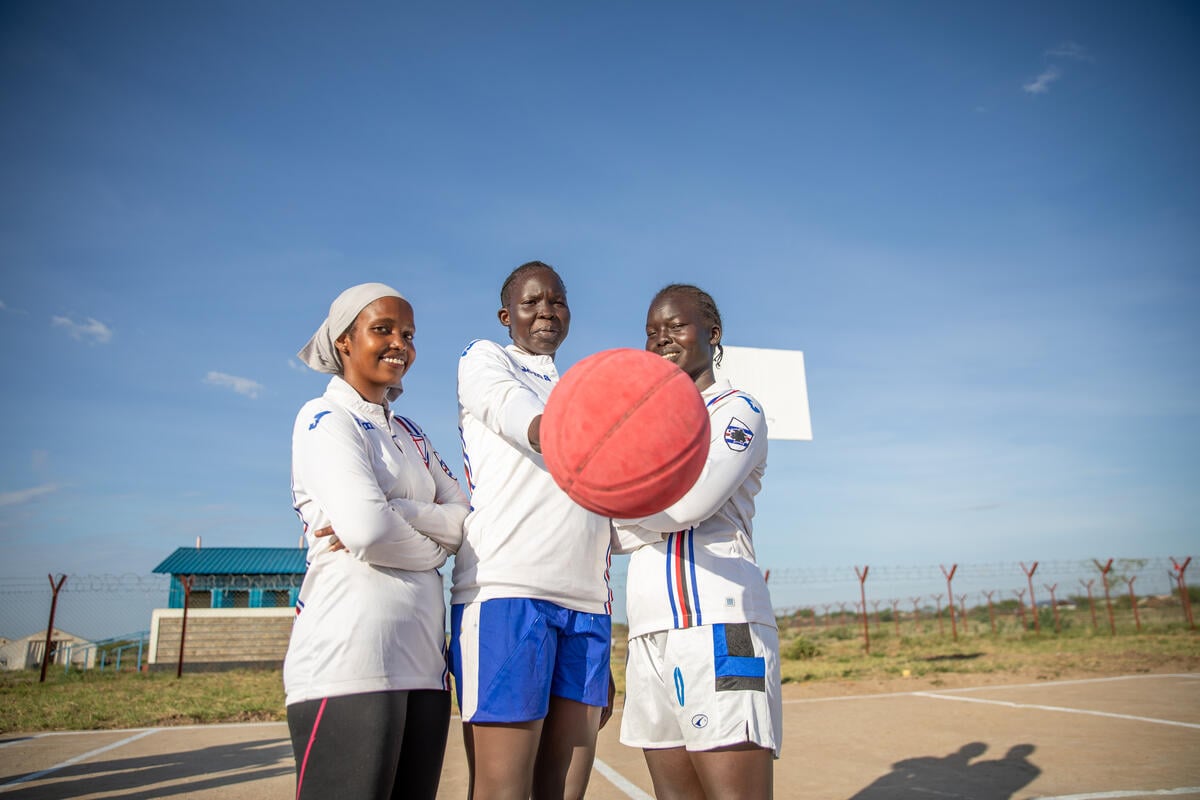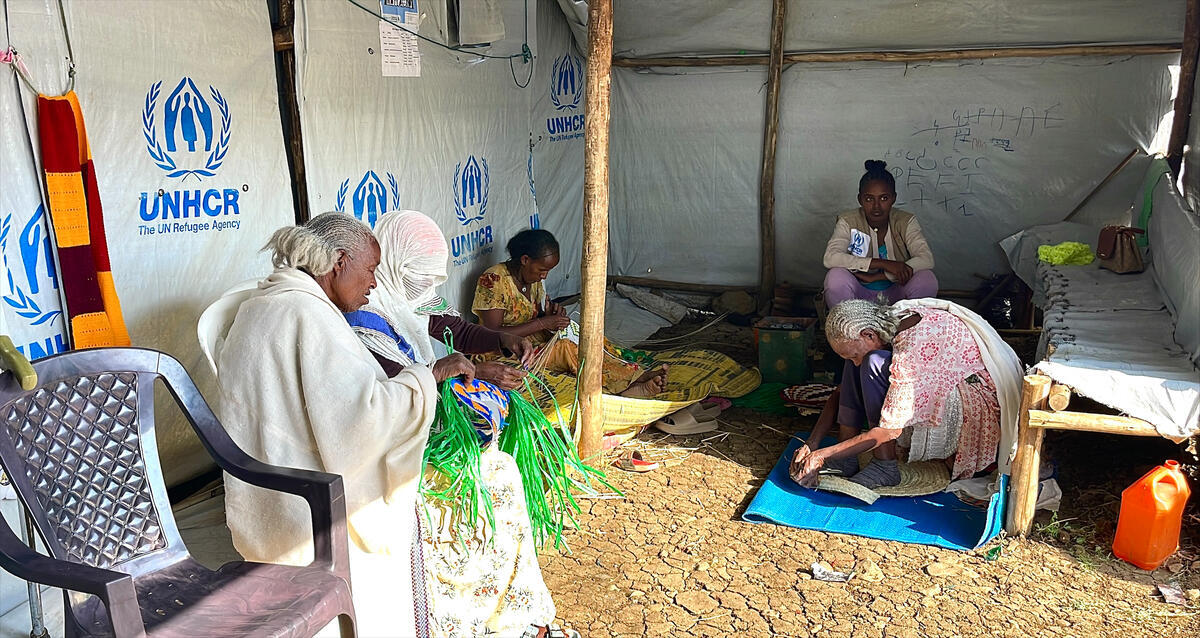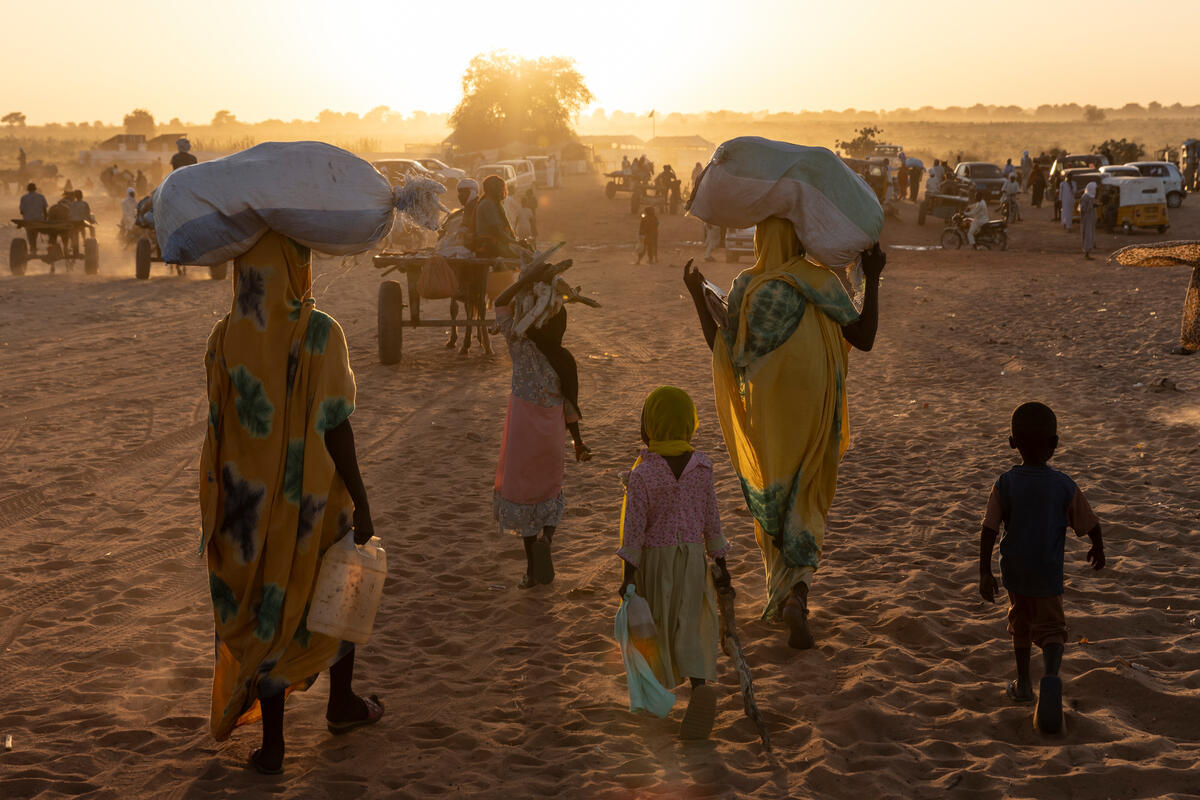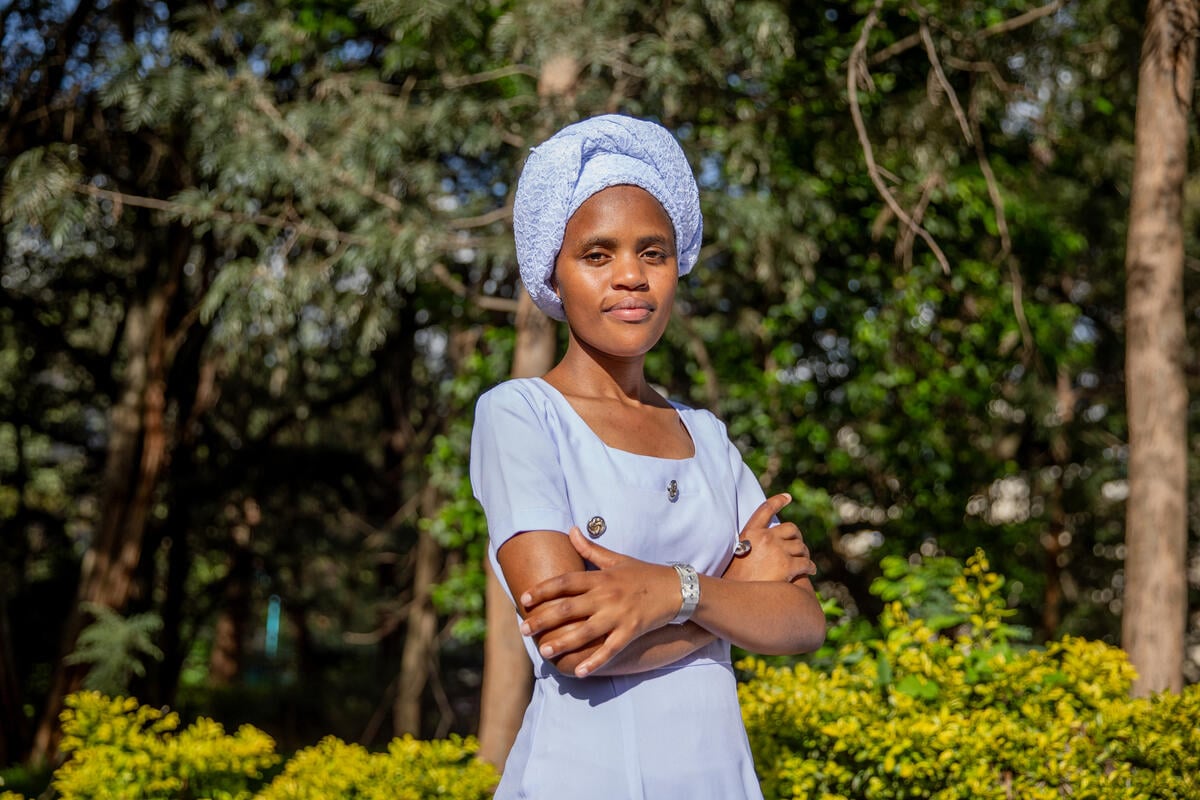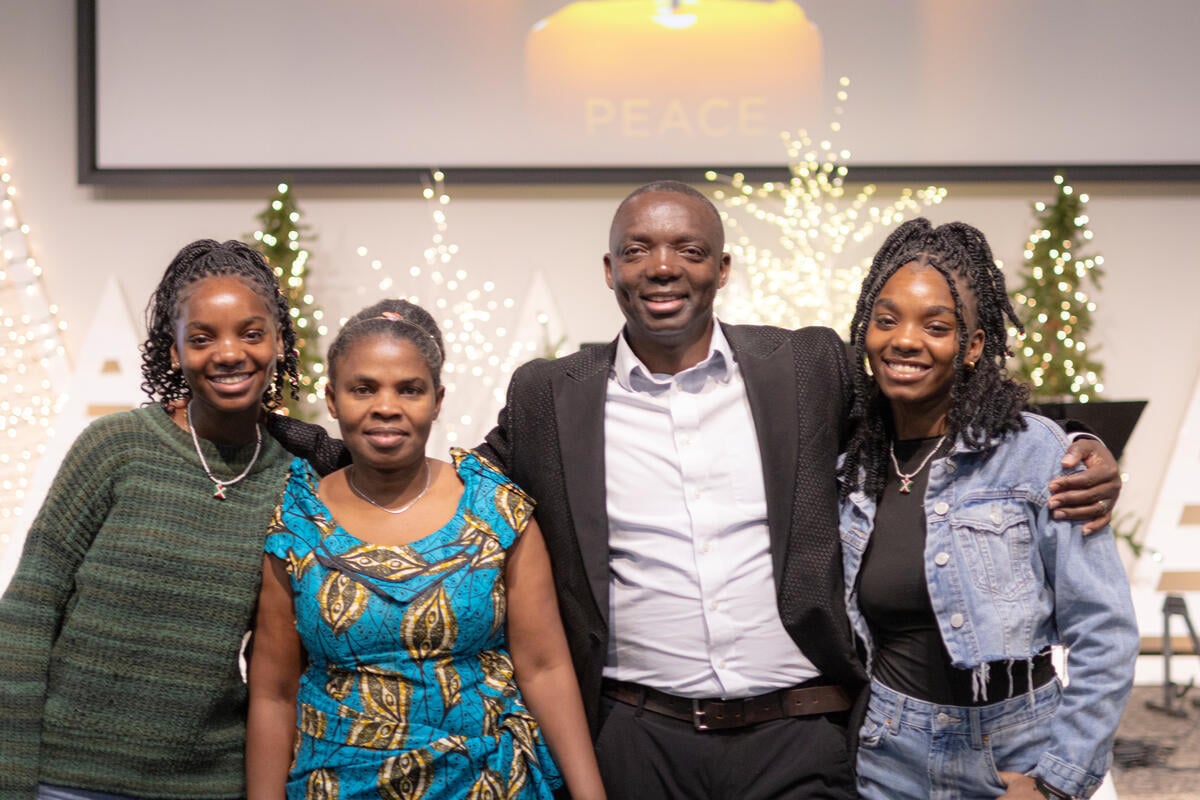Thousands flee into Kenya to escape Ethiopia violence
Thousands flee into Kenya to escape Ethiopia violence
Malicha Doyo, a 36-year old mother of six from Ethiopia, cradles her five-day-old baby daughter Nuria in a temporary reception centre in Moyale, in northern Kenya on the border with Ethiopia.
Malicha arrived heavily pregnant and hungry from the town of Tuqa five days ago, after an outbreak of violence in Ethiopia. Refugees say several people were killed when Ethiopian troops attacked their villages in a raid on opposition areas.
The Ethiopian government said its soldiers mistakenly killed nine civilians and wounded a dozen others. The soldiers involved had been disarmed and a delegation had been sent to the region to investigate the killings, it added.
Forty-eight hours after arriving in Moyale with her husband and five children, Malicha went into labour with her sixth child.
She is emotional and a little tearful, delighted to have delivered baby Nuria safely, but worried about the situation at home and how long she might have to stay in Kenya.
“I was really afraid that the baby would come while she was on the way."
Sitting right next to her is her mother, Darmigalma Boru, 55, who arrived a few days after her daughter.
“I was really afraid that the baby would come while she was on the way, but I just thank God that she waited until she arrived to safety,” she said.
They are among about 9,600 Ethiopians estimated to have crossed the border into Kenya in the past two weeks.
More than 80 per cent were women and children, nearly 1,500 of them children under five. The influx included more than 600 expectant mothers, as well as disabled and elderly people.
The identities of those who were killed in the attack are not known, or how they died. The Ethiopian authorities say they are taking steps to restore peace.
Families like Malicha’s are dependent on the Kenyan government and humanitarian agencies. UNHCR, The UN Refugee Agency is working with other agencies sych as UNICEF, the World Food Programme, the Kenya Red Cross, Save the Children, World Vision, and Concern to meet the most urgent needs.
“We are grateful for the assistance we have received."
Water, food, and shelter materials are being distributed, and medical care is being provided by humanitarian organizations. Sanitation and hygiene facilities are under construction to prevent disease.
“We left with nothing and ate nothing during the two days it took us to get to Moyale,” says Darmigalma. “We are grateful for the assistance we have received, the plastic sheeting which we used to make our house, food, and other basic items such as kitchen utensils.”
The Kenyan government, with the help of UNHCR, is carrying out biometric registration of those who have arrived. Registering the asylum seekers will help the government and humanitarian agencies cater for the displaced and identify those with specific needs that UNHCR and other agencies can help to meet.
Local people in Moyale have also proved to be a lifeline. Halakano Rare who lives nearby, offered Malicha’s family a place to stay after Nuria was born.
"Although they are living in another country, if they come to us for security, then we have to assist.”
“I told them that baby needs a safe environment,” he told UNHCR. “So I decided to help them with shelter until they can find a better place to live. We are neighbours and the same community. Although they are living in the other country, if they come to us for security, then we have to assist”
Malicha and Darmigalma say they are happy and feel safe Kenya. However, they hope to go back home once it is safe to do so.
“Ethiopia is our country and, as long as there is peace, we will go back.”






